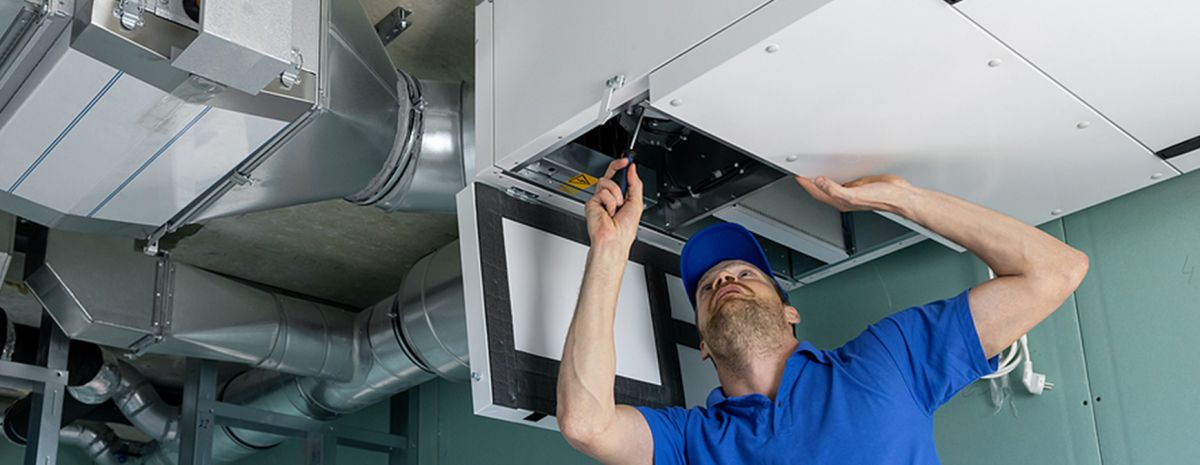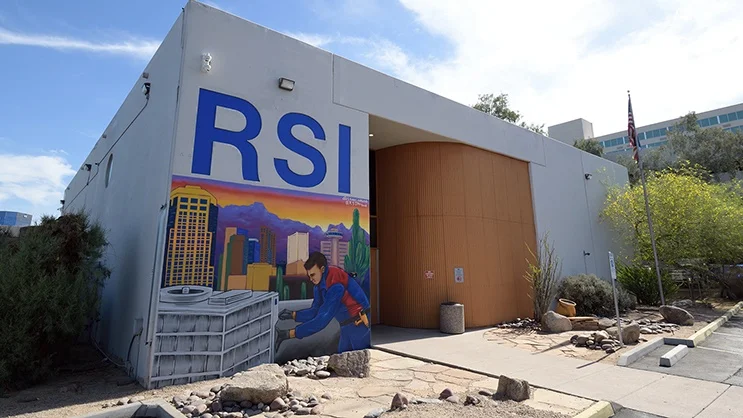RSI is a Great Training Option for Everyone
Learn more about how we can prepare you to advance your career.
The U.S. Department of Energy defines a HEPA filter as a type of pleated mechanical air filter.
HEPA stands for “high efficiency particulate air.” HEPA filters are highly efficient and 99.97% effective at trapping dust, pollen, bacteria, mold and other airborne particles, some of which are extremely tiny.
What Does a HEPA Filter Do?
Developed in the 1940s, HEPA filters are made from glass or synthetic materials, randomly aligned into a mat of fibers.
HEPA filters fall into the category of mechanical air filter, and they work by forcing air through a fine mesh.
What’s important about HEPA filters is that they must adhere to a strict set of guidelines. In the U.S., they must remove 99.97% of particles in the air. In Europe the effectiveness rate must be 99.95%.
Get Started on the Path to a New Career
Fill out our form to learn how we can help you change your life.
Why Use a HEPA Filter?
HEPA filters can remove particles in the air:
- Pollen
- Pet dander
- Dust mites
- Tobacco smoke
- Viruses
- Bacteria
- Allergens
- Mold spores
HEPA filters trap indoor air pollutants, which could help with asthma or allergy relief. If a home has recently experienced water damage from a flood, HEPA filters can help remove mold spores and bacteria that might have arisen.
Similarly, nearby fires can cause smoke particles to accumulate at unhealthy levels, which HEPA filters would detect and filter out. High chemical environments and cleanroom environments could also benefit from HEPA filters.
Indoor air could be more polluted than outdoor air. When people are spending a lot of time indoors, for example, air filters could help improve indoor air quality.
Using & Maintaining a HEPA Filter
HEPA filters are available for most air purifiers, which are small, portable units for a single room. Filters come in different sizes, so it’s important to buy the right size for the room it will be used in.
Air filters should be placed in the room where you spend the most time, usually the bedroom.
To maximize the efficiency and effectiveness of a HEPA filter, it will need to be cleaned periodically. The filter will need to be replaced, and some maintenance may be required.
HVAC technicians can help customers understand this part of their HVAC system.
What HVAC Techs Need to Know
HVAC professionals can play a key role in maintaining indoor air quality for people with allergies or other health considerations because they are usually knowledgeable about air filters.
Air Filter Options
HVAC techs may be able to help customers understand their options for air filters. HEPA is one type of air filtration system; EPA and ULPA are other air filtration designations.
According to air purifier company Smart Air, EPA (efficient particulate air) filters have a filtration rate of 85%-99.95%, and ULPA (ultra low penetration air) filters have a filtration rate of more than 99.99%.
MERV Ratings
Technicians with proper HVAC training and field experience are typically knowledgeable about which filters are effective at catching particles of different sizes. HEPA filters, for example, can filter particles as small as 0.3 microns.
An important factor in choosing an air filter is the MERV rating. MERV stands for Minimum Efficiency Reporting Values, and it uses a numerical system to rate filtration specifications. The higher the number, the better the filter is at trapping certain particles.
Filter Maintenance
HVAC techs may sometimes perform service calls and be on the front lines of customer interactions, so staying up to date on indoor air filters like HEPA could be a part of a HVAC technician’s job.
HVAC techs can also help customers understand when and how to change the filter, and how to clean it, or provide direct maintenance themselves.
The Role of HVAC Techs in Indoor Air Quality
HEPA air filters can help promote healthy indoor air quality in homes and buildings. HVAC technicians can help educate customers about air filters, as well as perform important modifications to the equipment.
They can play a role in keeping indoor air clean for customers—yet another reason to consider becoming an HVAC technician.
Additional Sources




